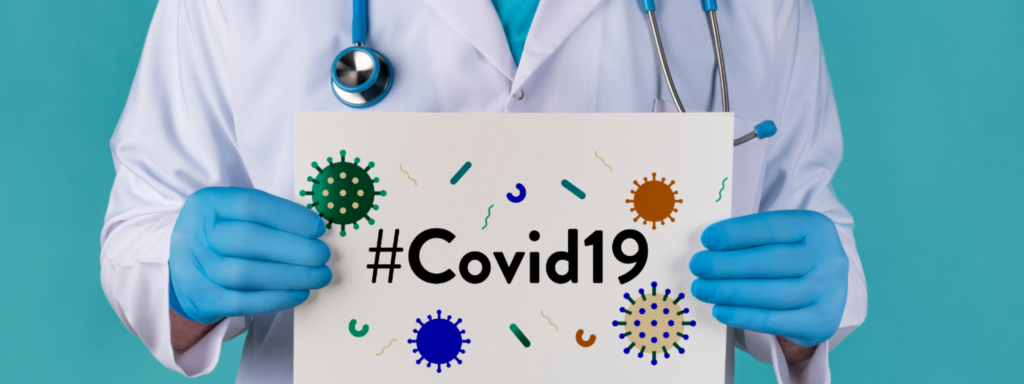Today I got a positive result on the COVID-19 antigen test kit. I got a high fever with a running nose and a cough.
The COVID-19 pandemic has had a significant impact on the world since it first emerged in late 2019. The virus has infected millions of people and caused numerous deaths. Understanding the symptoms and treatments of COVID-19 is essential to controlling the spread of the virus and keeping ourselves and our communities safe. In this blog, we will explore the symptoms of COVID-19 and the treatments available.

Symptoms of COVID-19
COVID-19 is caused by the SARS-CoV-2 virus and primarily spreads through respiratory droplets when an infected person talks, coughs, or sneezes. Symptoms of COVID-19 can range from mild to severe and can appear anywhere from 2 to 14 days after exposure to the virus.
The most common symptoms of COVID-19 include:
- Fever or chills (my symptom)
- Cough (my symptom)
- Shortness of breath or difficulty breathing
- Fatigue (my symptom)
- Muscle or body aches
- Headache (my symptom)
- New loss of taste or smell
- Sore throat (my symptom)
- Congestion or runny nose (my symptom)
- Nausea or vomiting
- Diarrhea
Not everyone with COVID-19 will experience all of these symptoms, and some people may not have any symptoms at all. However, it is important to note that even those who are asymptomatic can still spread the virus to others.
Treatments for COVID-19
Currently, there is no specific cure for COVID-19, but there are treatments available that can help manage the symptoms and reduce the severity of the illness. Treatment for COVID-19 varies depending on the severity of the illness and the patient’s individual needs.
Mild to Moderate COVID-19
For patients with mild to moderate symptoms, the main focus of treatment is to manage symptoms and prevent complications. This may include:
- Rest and hydration
- Over-the-counter pain relievers such as acetaminophen or ibuprofen
- Cough suppressants or expectorants
- Humidifiers or steam treatments to help with congestion
- Monitoring oxygen levels with a pulse oximeter
Severe COVID-19
For patients with severe COVID-19, hospitalization may be necessary. In addition to the above treatments, patients with severe COVID-19 may receive:
- Oxygen therapy
- Mechanical ventilation to assist with breathing
- Steroids to reduce inflammation in the lungs
- Blood thinners to prevent blood clots
- Experimental treatments such as remdesivir or monoclonal antibodies
Prevention of COVID-19
Prevention is the best way to stop the spread of COVID-19. To protect yourself and others, it is important to:
- Get vaccinated against COVID-19 when a vaccine is available to you
- Wear a mask when in public or around others
- Practice social distancing by staying at least six feet apart from others
- Wash your hands frequently with soap and water or use hand sanitizer
- Stay home and get tested if you are feeling sick
Conclusion
COVID-19 is a highly contagious virus that can cause mild to severe symptoms. Knowing the symptoms of COVID-19 and seeking medical attention when necessary can help prevent complications and reduce the spread of the virus. While there is no specific cure for COVID-19, treatments are available to manage symptoms and reduce the severity of the illness. However, prevention is the best way to protect ourselves and others from COVID-19. By practicing good hygiene, social distancing, and getting vaccinated, we can work together to keep ourselves and our communities safe.
